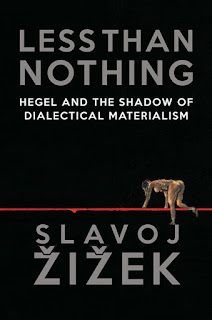... , the true conspiracy of Power resides in the very notion of conspiracy, in the notion of some mysterious Agency that effectively runs the show, that behind the visible, public Power, there lies another obscene, invisible, "crazy" power structure. This other, hidden Law acts the part of the "Other of the Other" in the Lacanian sense, the part of the meta-guarantee of the consistency of the big Other (the symbolic order that regulates social life). "Totalitarian" regimes were especially skilled in cultivating the myth of a secret parallel power, invisible and for that very reason all-powerful, a kind of "organization within the organization" -- the KGB, freemasons, or whatever -- that compensated for the blatant inefficiency of the public, legal Power and thus assured the smooth operation of the social machine. This myth is not only in no way subversive, it serves as the ultimate support of Power. The perfect American counterpart to it is (the myth of) J. Edgar Hoover, the personification of the obscene "other power" behind the president, the shadowy double of the legitimate Power. Hoover held onto power by compiling secret files that allowed him to keep the entire political and power elite in check, while he himself regularly indulged in homosexual orgies dressed up as a woman. When K’s lawyer offers him, as a desperate last resort, the role of playing the martyr-victim of a hidden conspiracy, K. turns it down, being well aware that by accepting it he would walk into the most perfidious trap of Power.”
― Slavoj Žižek, Less Than Nothing: Hegel and the Shadow of Dialectical Materialism, p.688
